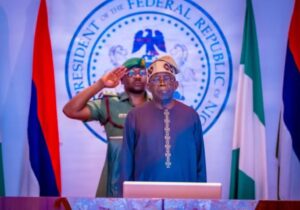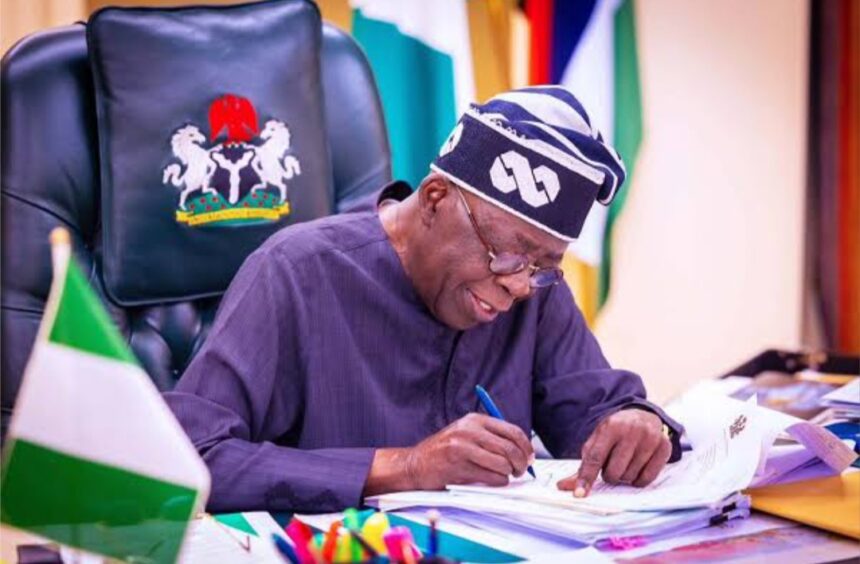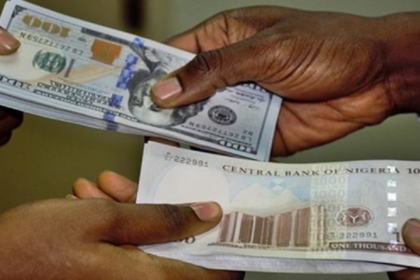Perhaps the most significant gain is intangible
Since assuming office, President Bola Ahmed Tinubu has pursued a bold vision centered on one core principle: Nigeria First. This policy approach, rooted in prioritizing national interests across every sector, is beginning to show concrete results in the lives of ordinary Nigerians and in the structure of the economy.
One of the most visible outcomes is the improved availability of fuel across the country. Where queues once stretched for hours, there is now a more consistent fuel supply thanks to reforms in the downstream sector and the renewed focus on local refining, including support for facilities like the Dangote Refinery and upcoming BUA Refinery. …CONTINUE READING


This has not only eased transportation pressures but also cut down on the panic-buying culture that previously disrupted daily life.
Local industries are also experiencing a revival. In the past year, the government’s import-substitution strategy and local content policies have helped reduce dependency on foreign goods.
This shift is breathing new life into the manufacturing and agricultural sectors. For instance, rice and maize production in states like Kebbi and Nasarawa has increased, creating new jobs and reducing the cost of food items in local markets.
Nigeria’s investment climate is improving too. Following a series of economic reforms—including the unification of exchange rates and the removal of fuel subsidies—global investors are beginning to take notice.
The Nigerian Investment Promotion Commission reported a rise in investment pledges, particularly in tech, energy, and infrastructure, with notable interest from the Middle East and Asia.
The naira, though still facing volatility, has shown signs of stabilization. This is largely due to tightened monetary policies, the crackdown on currency racketeering, and increased emphasis on local production. While challenges remain, there’s cautious optimism that the local currency is on a path toward gradual recovery.
In terms of social welfare, the Tinubu administration has launched and expanded key programs aimed at supporting vulnerable Nigerians. Over 15 million households are now beneficiaries of conditional cash transfers. The reintroduction of student loan schemes—targeted at indigent tertiary students—has also received commendation, offering hope to families struggling with school fees.
Another gain of the Nigeria First policy is improved border security. With heightened enforcement by the Nigeria Customs Service and the Immigration Service, smuggling of rice, fuel, and other commodities has dropped, thereby protecting local producers and enhancing national revenue.
In the digital economy, Nigerian-owned tech startups are being empowered like never before. Through access to funding and mentorship from government-backed initiatives, young innovators in cities like Lagos and Abuja are leading solutions in healthtech, edtech, and agrotech—proof of growing confidence in homegrown talent.
Public procurement has also seen a shift. Nigerian contractors are now being prioritized in the award of federal projects, ranging from road construction to housing development. This ensures that capital projects contribute directly to local job creation and knowledge transfer.
Even the civil service is undergoing reform. Recent recruitment efforts have emphasized transparency and merit, with an eye on national integration. The federal character principle is being enforced more rigorously to reflect the country’s diversity, rebuilding public trust in government institutions.
Perhaps the most significant gain is intangible—the rekindling of national pride. Tinubu’s consistent messaging about self-reliance and national ownership is resonating. Citizens, once disillusioned, are beginning to engage more actively with governance and take pride in Nigerian-made goods and services.
While the journey is far from over, the Nigeria First policy is laying the foundation for a more self-sufficient and confident nation—one where progress, though gradual, is being built from within.
-Societynow




